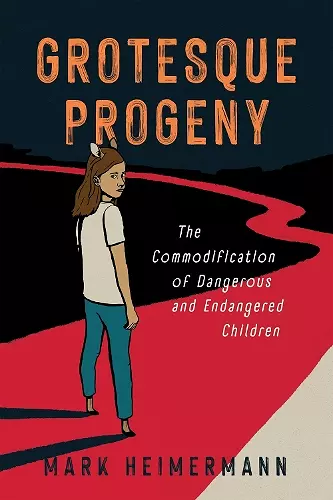Grotesque Progeny
The Commodification of Dangerous and Endangered Children
Format:Hardback
Publisher:University Press of Mississippi
Published:16th Dec '24
£86.00
Supplier delay - available to order, but may take longer than usual.

In contemporary Western society, childhood appears more protected than ever to the casual onlooker. Yet, we are increasingly fascinated by narratives in which children are depicted as unsettling beings, both dangerous and endangered, sometimes chaotic or even evil. In Grotesque Progeny: The Commodification of Dangerous and Endangered Children, author Mark Heimermann argues that these representations reflect cultural anxiety regarding a shifting conception of youths from emotional assets to economic ones.
In the early to mid-twentieth century, children, who had previously been viewed in part as economic investments, were largely moved out of the work force. For decades, children were instead valued primarily as emotional assets. However, the rise of neoliberal capitalism in the 1970s and 1980s, and its eventual proliferation throughout our politics and our lives, has led to the widespread commodification of social arenas previously kept separate from the capitalist quest for profit. Not even children have escaped being objectified and dehumanized in this manner.
Heimermann examines a variety of texts that center on children and adolescents who are marked as different from the adult characters and consequently viewed as grotesque. Chapters cover Jeff Lemire’s Sweet Tooth, M. R. Carey’s The Girl with All the Gifts, Katherine Dunn’s Geek Love, Richard Starkings’s Elephantmen, Kazuo Ishiguro’s Never Let Me Go, and more. Because the young characters are not viewed as equal members of society, they must either strike back at those who commodify them or risk facing a lifetime of dehumanization. Grotesque Progeny argues that these monstrous depictions reveal societal unease over shortsighted economic and political thinking, the exploitation of children, and the changing nature of childhood. The book addresses a growing concern over which spaces ought to be excluded or removed from the harsh valuations of neoliberalism.
ISBN: 9781496853561
Dimensions: unknown
Weight: unknown
277 pages